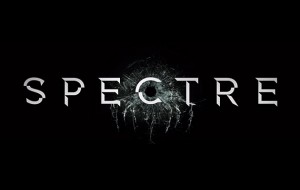Job interviews are an inescapable part of every educated individual’s life.
One has to face at least a couple of interviews in his or her entire professional tenure. How you wish you knew mind reading and could just tell what the interviewer is thinking about you. What if this wish of yours comes true?
With a little practice, keen observation and psychological analysis you can almost listen to the thoughts of the interviewer.
More about the same follows.
The 2007 financial crisis has affected the job market in such a way that both the communities, that of jobseekers and recruiters, are having a tough time adjusting with each other.
Savvy recruiters and hiring managers are using a variety of job interview techniques to make sure that they do not end up chasing the wrong candidate. Under such competitive circumstances, a job hunter’s task, which was already tough, has become even trickier than before.
Now, if you need to stand out from others at an interview you are going to need some extra aces up your sleeve.
Almost everyone knows the normal preceding routine to an interview; researching the organization, dressing up well, and arriving on time at the venue. However, the hard part starts now.
Right from the moment you enter the room, till the last word you speak, you will be constantly judged based on your actions, gestures, body language, tone, and last but not the least, your answers.
According to Patti Wood, a body language expert and author of Snap: Making the Most of first Impressions, Body Language, Charisma, “A candidate can give out thousands of non-verbal cues within the first minute of meeting a hiring manager, and those messages make more of an impact than the words that you use during the interview”.
Now, if you have been to even a couple of interviews, you must be well aware of the fact that hiring decisions are made on more than just skills and experience. It’s a game of Hide and Seek, where multiple psychological factors come into play.
The recruiter will ask certain questions that may appear simple on the surface but are attempts to dig deeper on a psychological level.
He can even play mind tricks on you. But with a little application and experience you can turn the tables and play your own tricks on him to get through the entire process unscathed and emerge as a winner.
Imitation Is the Best Form of Flattery: Use Mirroring
The Mirroring Technique is one of the worst kept secrets of influencing people. It is a great way of establishing instant rapport and initiates a certain level of mutual trust.
If you are able to execute the technique perfectly, the interviewer will deem you trustworthy as he subconsciously finds similarities that connect him with you.
In simplest of terms, mirroring is copying another person’s behavior, way of speaking and mannerisms so as to become a mirror of the other person. The interviewer nods, you nod, he puts his hands on the table, you repeat after him (after a gap of 20-30 seconds) and stuff like that.
However, proper execution is of utmost importance as the interviewer should never feel that you’re copying him.
Another important rule while mirroring is to adopt only the positive body language and speech from the interviewer. If he gets angry at something, do not even consider pissing him off further by copying his anger. An interviewer with
Do Away With the Fake Smile
Every single positive body language signal that you make in the interview room is a step forward towards clinching the job offers.
Smiling, maintaining eye contacts, sitting in a relaxed posture are all some basics that we are taught to positively influence the interviewer. However, too much of fake smiling should be avoided. False smiles are often easy to spot and too much of it in an interview results in an unfavorable evaluation.
This holds true for other body language gestures as well.
Have A Weakness? Do Not Be Afraid Of Showing It
This is pretty much clichéd.
No one is perfect and our resumes have weak spots. So are you better off hiding them or being upfront and honest about them is a better option?
We all want to be in the good books of the recruiter, and knowing that this interview is perhaps our only chance at making a positive impact; it becomes a real puzzle how to reveal our weaknesses without reducing our likeability.
According to a 1972 Jones and Gordon research, when someone was honest about his/her weaknesses, those listening had a more favorable impression of him or her than if he or she concealed it.
Most of us find honesty as a positive trait, & therefore you have nothing to fear while coming up with your weakness, unless it severely harms your job prospects.
Use the Recruiter’s Name or Title While Having the Conversation
One book that every professional is recommended to read is Dale Carnegie’s How to Win Friends and Influence People.
Dale says that using someone’s name is an incredibly important part of any conversation. Rightly said, a name is the most intricate part of our identity that stays with us throughout the entire lifetime and even after our death.
Hearing it makes the person feel positively about the person who said it. To use this fact for influencing an interviewer you can refer to him with his name or a title that goes well with his position.
Leave the Fear Outside The Interview Room
The four-letter F word, i.e Fear is certainly the biggest enemy of all job seekers. Pre-interview anxiety is the biggest hindrance in your performance on the big day.
While interview nerves are common and do not always mean a bad outcome, feeling excessive anxious and nervous often sabotages your chances of making it through. To overcome this fear, just remember three commandments:
- Preparation
- Positive thinking
- Avoiding desperation
The last one is pretty important. No matter how badly you want the job, don’t make it a matter of life and death. Remember, it’s just one opportunity and there are many more to come.
Author bio:
Saurabh Tyagi is a career author who has written articles and blog posts for job seekers. These articles help individual apply to new jobs and make through the interviews with unmatched success. Twitter- https://twitter.com/sa_ty





